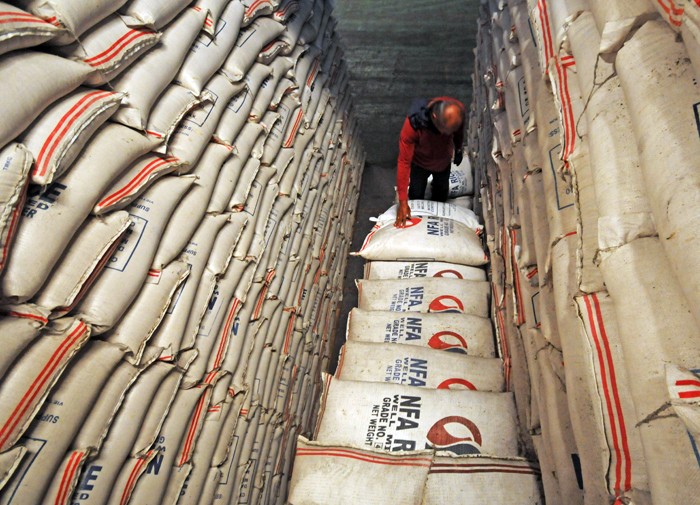- Kogi Seeks World Bank Support to Boost Rice Production
Kogi State Government has declared intentions to solicit support of the World Banks as part of efforts to scale up rice production. This was revealed by the State Commissioner for Agriculture, Mr. Oloruntoba Kehinde at the weekend.
According to him, the state government was thrilled with the success recorded by the World Bank in cassava production and its value chain under the Fadama 111 addition financing in Kogi.
The Commissioner, who described Kogi as ‘a confluence of opportunities’, blessed with rivers, fertile expanse of land and able-bodied men, expressed confidence that the World Bank’s intervention would make the state one of the largest producers of rice in North Central Nigeria.
He stated that areas like Ibaji, Ejiba/Omi Dam, Bassa, Koton-Karfe, Lokoja, Omala, among others, had abundance of usable farm lands for rice and aquatic culture.
Kehinde also informed that the state government had asked for the lease of federal government’s 4,500 hectares land around Omi Dam in Yagba West and Ibaji Local Government Areas for rice production.
Stallion Farms Bags Outstanding Rice Value Chain Award
Stallion integrated rice value chain approach has been bequeathed with the Feed Nigeria Summit ‘Agro Processor of the Year Award’ at the just ended Nigeria Agriculture Awards.
The award, which is its second, after the IBCA-‘Outstanding Projects and Business Leaders of the Year Award’ bestowed on the company in March was in recognition of Stallion Popular Farms & Mills Limited concerted efforts at integrating rice value chain in Nigeria agrarian economy as well as its dogged resolves to humanise farmed rice and self-sustainability in food production.
“We owe this accomplishment to President Muhammadu Buhari’s leadership aptitudes and his agrarian-business agenda”, Stallion Popular farms & Mills Group Director, Hapreet Singh remarked.
He said the farm is leveraging on the policy impetus of the federal government’s agricultural transformation agenda to bring sustainable and scalable growth to farmers.
The farm’s effort to increase cultivated rice yield began in 2007 and has since been at the forefront of paddy agronomists in the country, working tirelessly to enhance rice production through scientific agricultural practices.
Singh, while receiving the award, on behalf of the farm at the occasion in Lagos, said the company hopes to increase locally farmed rice to 1.5million tonnes yearly from 450, 000 metric tonnes.
He said the farm has already deployed enhanced milling activities and set up more milling facilities through structured farming techniques.
“Our vision has always been to preserve and enhance rice production in Nigeria by ensuring genetic integrity of seeds, encouraging scientific agricultural practices and promoting world-class processing techniques to emerge as industry benchmark for product quality,” Singh said.
Also noting that part of the company’s sustainable efforts was to integrate rice growing values among the locals, the group director said it has established procurement and collection centers; introduced co-operative associations as well as logistics and post-harvest epicenters and marketing midpoint, while it acts as a catalyst for achievable growth.
A farm division of Stallion West African conglomerate, Popular Farms & Mills Limited recently established collection centers across rice producing states in Adamawa, Taraba, Benue, Niger, Kaduna, Kano, Jigawa, Sokoto, Zamfara and Kebbi to not only help farmers embrace modern farming techniques but help distribute farm inputs through farmers cooperatives and associations to inspire rice revolution in Nigeria.
Popular Farm is today renowned for producing premium varieties of rice from farmed paddy, which are branded and distributed nationwide as Royal Stallion Shinkafa, Tomato Aroso and Super Champion.
The agrarian establishment however promised to safeguard timely provision of certified seeds and fertilizers, and offer advisory irrigation, crop management and buy back mechanism to help farmers get good and profitable yields from their harvest.
While also thanking Feed Nigeria Summit for creating a platform to acknowledge real positive change makers in the agrarian sector, Singh said the creation of integrated agricultural operations such as world-class rice mills at strategic locations would promote milling and paddy cultivation in the captive areas and consequently make Nigeria self-sufficient in rice production.
Anambra State Commissioner for Agriculture, Afam Mbanefo, who presented the award to the Farm representative, applauded Popular Farms and Mills expressive commitment towards federal government’s exhaustive agenda in rice production.
“You have not only supported the country’s agrarian objective for self-sufficiency in rice production but have also worked assiduously with local and state governments in ensuring food security. Your efforts are indeed remarkable,” he said.

 Naira3 weeks ago
Naira3 weeks ago
 News4 weeks ago
News4 weeks ago
 Naira4 weeks ago
Naira4 weeks ago
 Naira3 weeks ago
Naira3 weeks ago
 Jobs3 weeks ago
Jobs3 weeks ago
 Travel3 weeks ago
Travel3 weeks ago
 Naira3 weeks ago
Naira3 weeks ago
 Investment4 weeks ago
Investment4 weeks ago






























